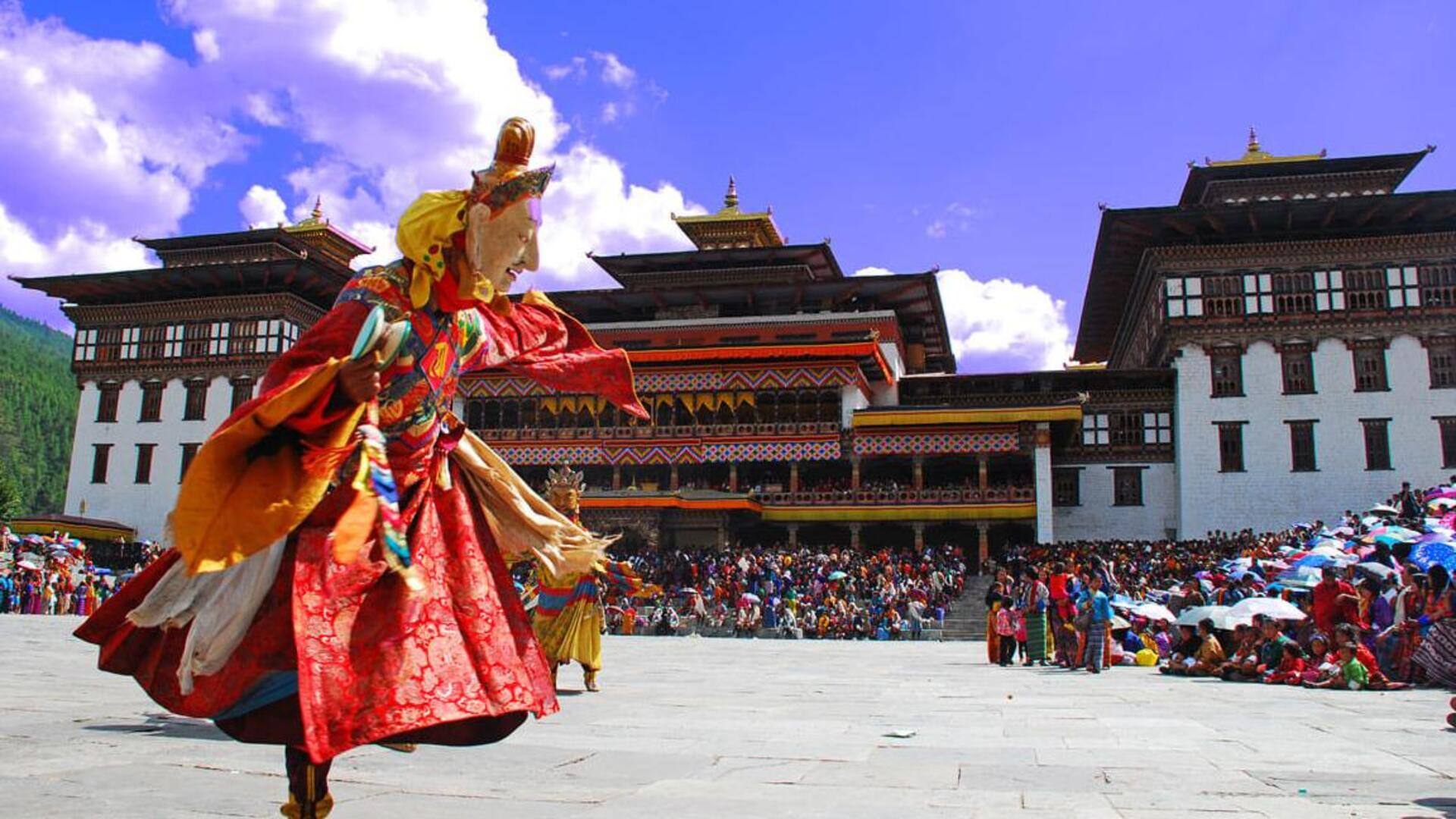
Bhutan's festive celebrations you can't miss
What's the story
Bhutan, a mystical kingdom cradled by the Himalayas, is celebrated for its majestic fortresses. These grand structures serve dual roles as centers of government and monastic life, while also acting as the backdrop for vibrant festivals. These events are a brilliant display of Bhutan's cultural richness, drawing visitors into a colorful world that celebrates tradition and community spirit.
Optimal season
Best time to experience festivals
The best time to experience festivals in Bhutan is during the spring and autumn seasons. This is when major events like Paro Tshechu in March or April and Thimphu Tshechu in September or October occur. These periods are marked by pleasant weather, characterized by clear blue skies and moderate temperatures, creating ideal conditions for enjoying the outdoor celebrations.
Cultural insight
Understanding festival significance
In Bhutan, each Tshechu festival is a profound celebration of history, honoring Guru Rinpoche, a spiritual saint. During these events, locals dress in elaborate costumes and masks to perform the cham dances. These dances are dramatic reenactments of cultural lore and teachings. Witnessing such performances provides a deep insight into the spiritual core of Bhutanese culture and tradition.
Travel tips
Planning your visit
To maximize your enjoyment of Bhutan's festivals, it's crucial to book your trip well ahead of time. Accommodations are in high demand during these peak seasons, and they tend to get booked rapidly. Hiring a local guide is highly recommended; they offer valuable insights into the dance symbolism and assist in navigating the festival's numerous activities, thus enhancing your cultural experience.
Etiquette guide
Respecting local traditions
When you join the celebrations, it's vital to honor Bhutanese customs. Wear conservative clothing and avoid taking photos during the most sacred parts of the festival. It's also essential to listen to local residents who can instruct you on appropriate conduct within these historic places. By doing so, you contribute to a respectful and peaceful atmosphere during these significant cultural events.